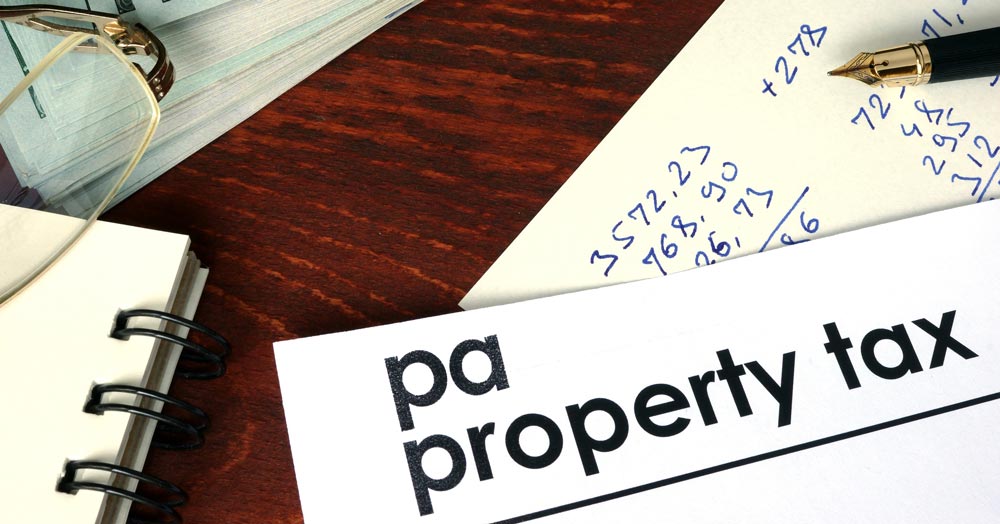Property Owners in PA looking to challenge their stormwater fees need to understand the requirements regarding how they are structured and assessed.
If you’ve read local newspapers or attended local government meetings in Pennsylvania over the past few years, you’re aware of the controversy over stormwater fees. Disgruntled landowners may call the fees “rain taxes,” but these fees are necessary to comply with the Environmental Protection Agency’s unfunded mandates on state and local governments.
What is a stormwater fee?
A stormwater fee is an assessment charged to property owners within a municipality’s service area in order to finance the costs of local stormwater programs. The amount of the fee for each individual property is usually determined based on its total impervious area (all surfaces that do not allow infiltration of water, including building coverage and surfaces made of materials like concrete and asphalt).
Why are stormwater fees imposed?
The short answer is that federal and state law have mandated a decrease in the amount of pollutants in waterways. Stormwater runoff is a major source of pollutants. Major projects will be necessary to reduce stormwater flow and the funds for these projects will come from municipalities. Most municipalities view stormwater fees as a more palatable and fairer alternative than taxation. .
The federal Clean Water Act sets stormwater requirements that the states administer under federal supervision. The Pennsylvania Department of Environmental Protection (DEP) administers stormwater matters under the MS4 (Municipal Separate Storm Sewer System) Program. The MS4 program applies to municipalities (or large institutions like universities and prisons) that have separate systems for sanitary sewer and stormwater management.
As of 2018, all municipalities in the MS4 program must meet specific pollutant load reduction targets by 2023, with penalties for noncompliance. Compliance will require significant improvements in most municipalities, from regular street and drain cleanings to construction of new retention basins and storm pipe infrastructure.
Why is there a stormwater fee and not a tax?
This mandate is not funded by EPA or DEP, so the costs of compliance fall to the local municipalities. Stormwater management fees are the least burdensome way for local governments to pay for compliance. The alternative of tax increases would be unpopular and would impose costs on the population as a whole rather than target those who generate stormwater. And ignoring the requirements would be even more costly, leading to penalties that would increase over time and also would be paid by all taxpayers. Stormwater fees are also fairer than taxes, because tax-exempt entities like government and nonprofit organizations that often generate significant stormwater runoff will pay stormwater fees.
What municipalities are or will be affected by stormwater fees?
Municipalities or large institutions regulated as MS4s, especially in watersheds designated as “impaired,” will be most affected by stormwater fees. MS4s gather stormwater through storm pipes, drains, or swales and discharge stormwater into local streams and rivers without any treatment.
The DEP manages the MS4 Program, issuing permits and ensuring compliance with federal mandates under the Clean Water Act. Specifically, DEP issues NPDES (National Pollution Discharge Elimination System) permits, authorizing MS4s to discharge stormwater into local waterways. To comply with NPDES permits, MS4 communities must develop a Stormwater Management Program (SWMP). Communities that discharge into watersheds classified by DEP as “impaired” must also develop Pollutant Reduction Plans (PRP).
DEP also requires minimum standards for stormwater controls in local ordinances, and has drafted a model ordinance that MS4s will have to implement by September 30, 2022 to remain compliant. There are over 1059 MS4s at the time of publication. Dep provides a list of these regulated MS4s, organized by county, on the its website, along with many other useful resources.
How are stormwater fees determined?
Municipalities can choose from several options to cover the costs of stormwater compliance. Some municipalities will assess fees directly. Others will create municipal authorities or join regional municipal authorities. Since 2013, the Municipality Authorities Act has permitted municipal authorities for stormwater management planning and projects. These municipal authorities have the authority to impose fees at “reasonable and uniform rates.” (See our earlier blog on municipal authorities for more info).
There are many variations in fee structures among municipalities and municipal authorities because fee calculation is left to the individual municipality or authority. Fees will be deemed reasonable if levied on property owners based on some calculation of the property’s potential to generate runoff. Some of the largest fees will come from properties that are exempt from real estate taxation under Pennsylvania law, such as schools, large churches, and authorities that own large tracts of real estate. The budget effect for these exempt entities may be significant.
A municipality or authority can choose from various methods of measurement as a basis for stormwater fees. Possible methods include the Equivalent Residential Unit (ERU) based on the average impervious area of a residential parcel in the community or a tiered system with several subcategories based on impervious area. More complex calculations include “Intensity of Development Factors (IDF)” or “Equivalent Hydraulic Areas (EHA),” that account for and weight both pervious and impervious area, to scientific and highly-tailored methods like the “Residential Equivalent Factor (REF)”. There is no uniform solution for determining stormwater fees, and the proper method will depend on many factors, including the overall land use characteristics, size, resources, and feedback from constituents and stakeholders. The Overview of Municipal Stormwater Fee Programs, published by the Pennsylvania Environmental Council, provides useful explanations of each method.
How do you get help if you have issues related to stormwater fees?
If you represent a municipal client that needs to comply with a current EPA mandate or a municipality wishing to establish a stormwater authority preventatively, before being mandated to do so, High Swartz can help. We provide counsel to help “thread the needle” of compliance, avoidance of large penalties, and limiting exposure to litigation from property owners.
If instead you are a property owner in a municipality that is implementing or planning for a stormwater fee, High Swartz can help ensure that the fees are based on accurate information, and levied in a “reasonable and uniform” manner, as required by law.
Our experienced municipal government team at High Swartz has in-depth knowledge and experience in all aspects of stormwater management and municipal law and can aid you in navigating this complex area of law and asserting and protecting your interests. Call us at 610-275-0700 or use the contact form found on this page.











